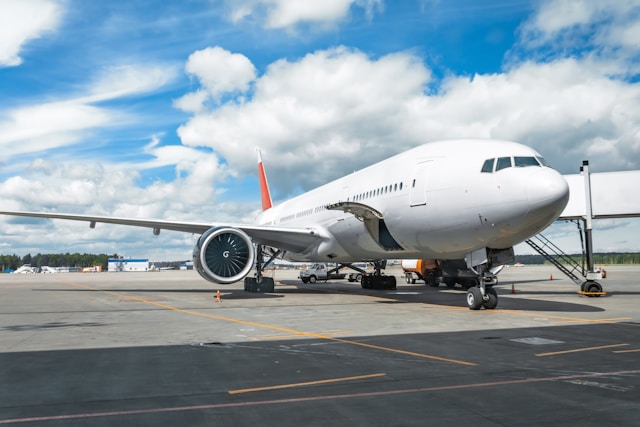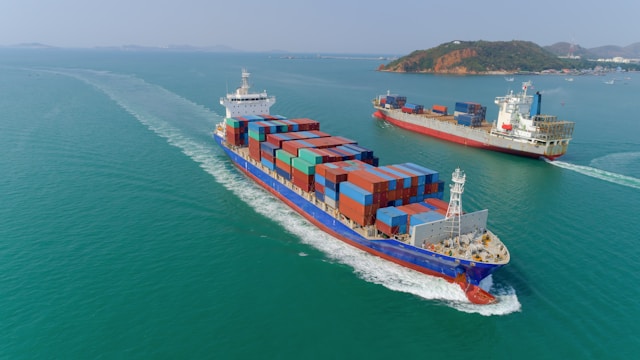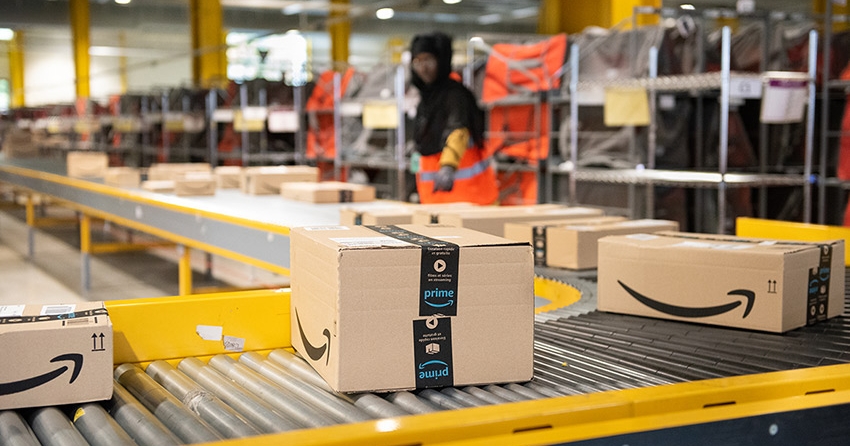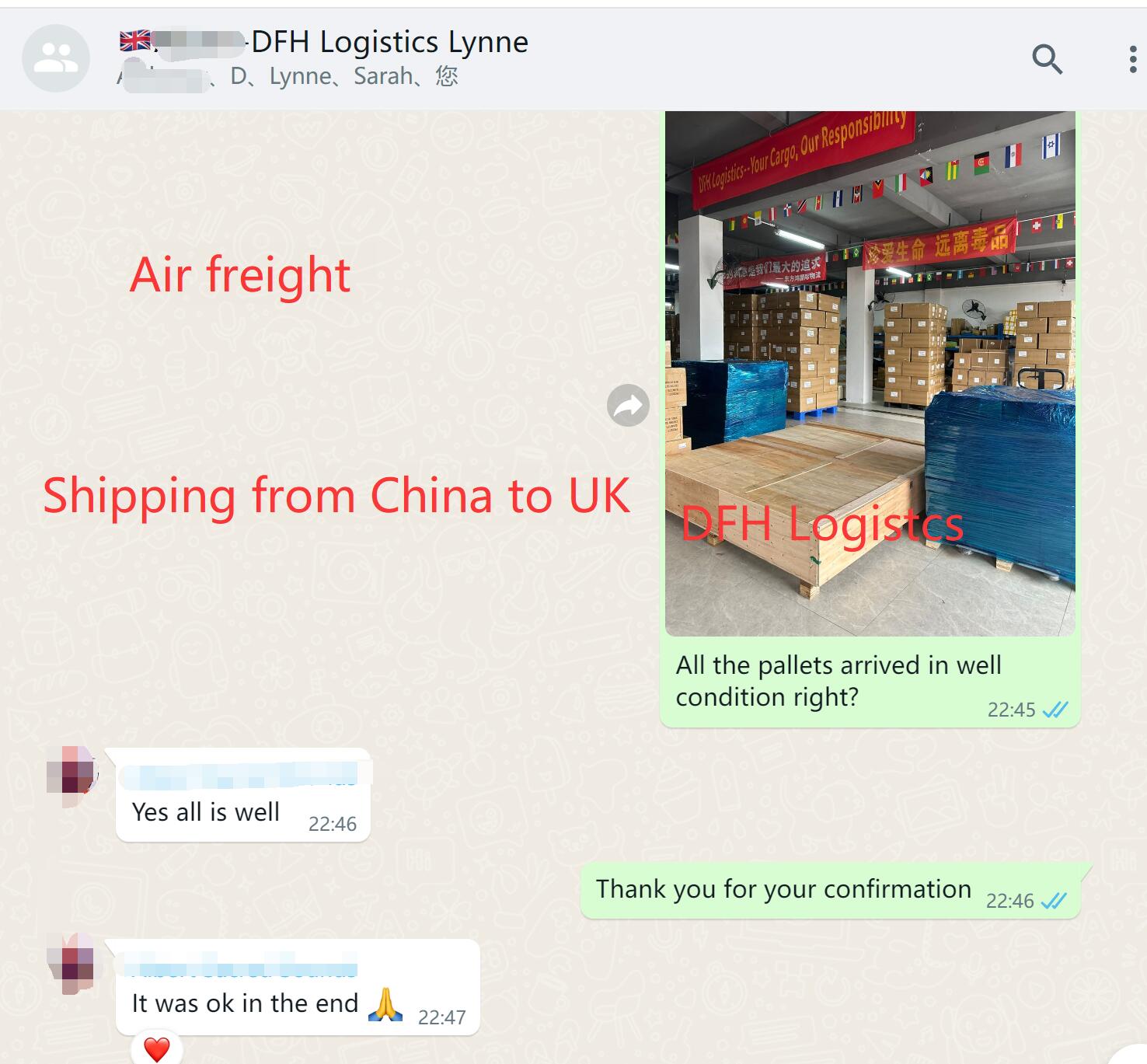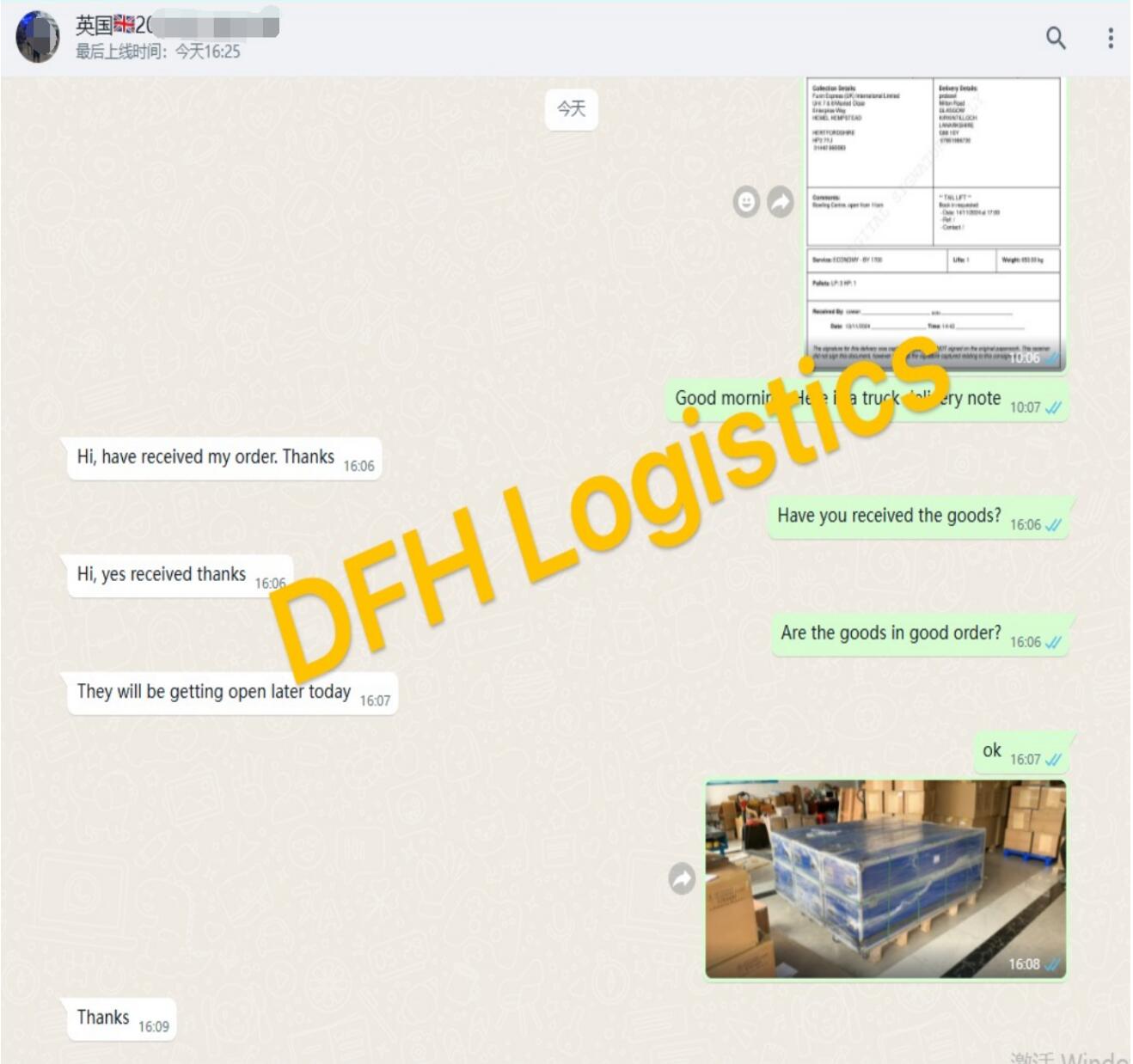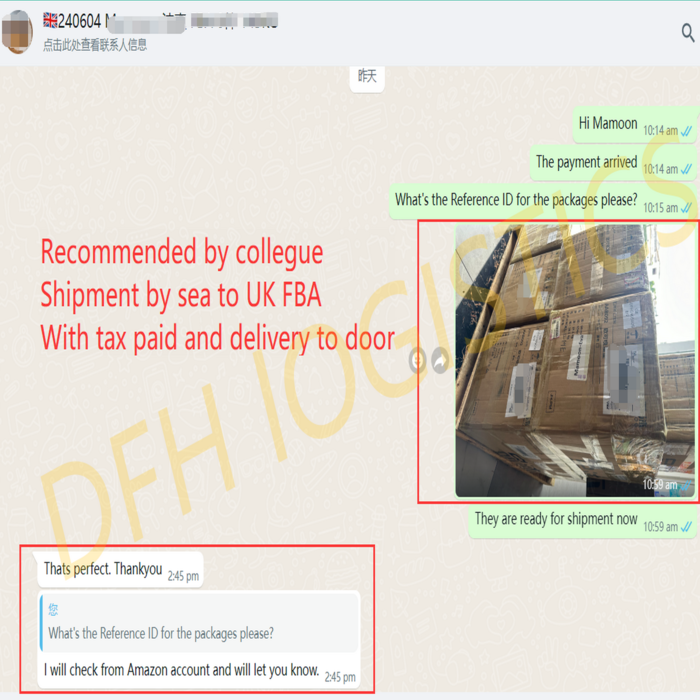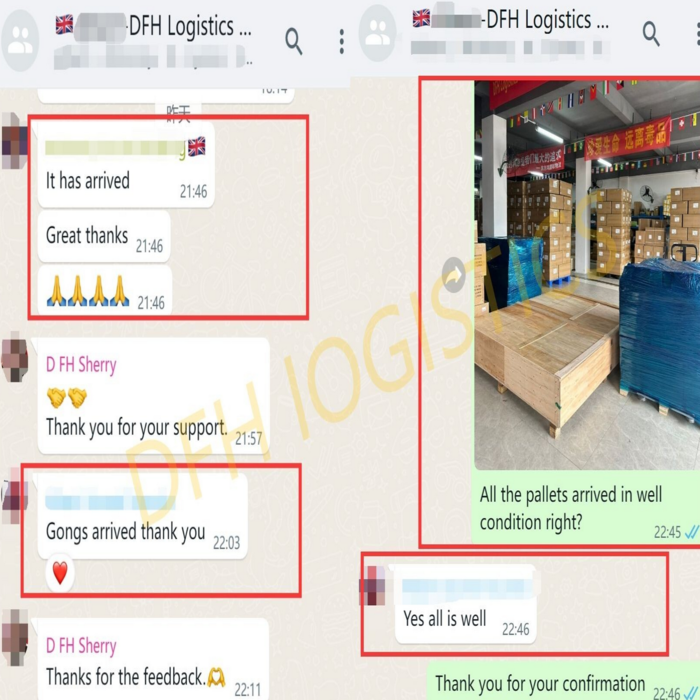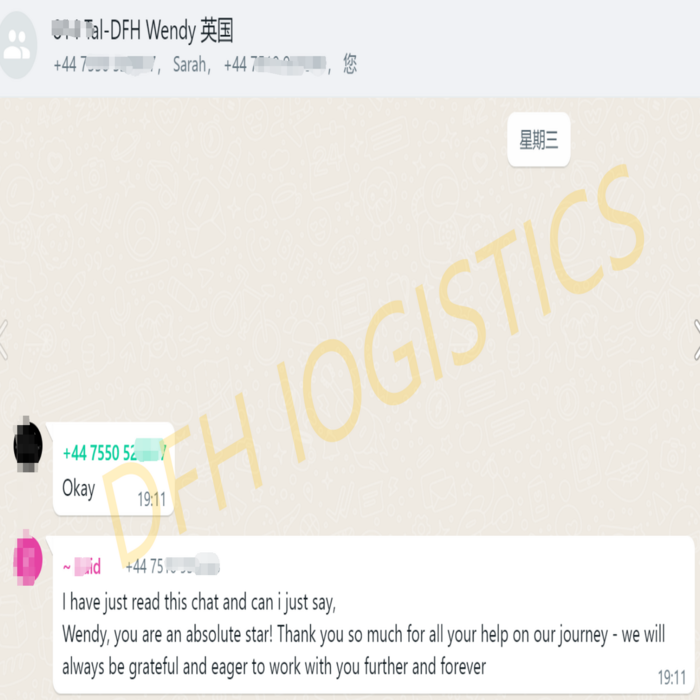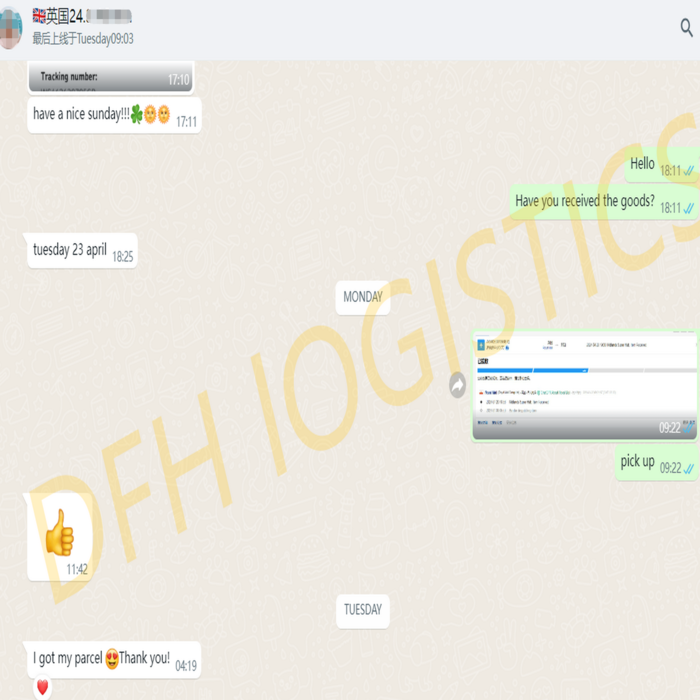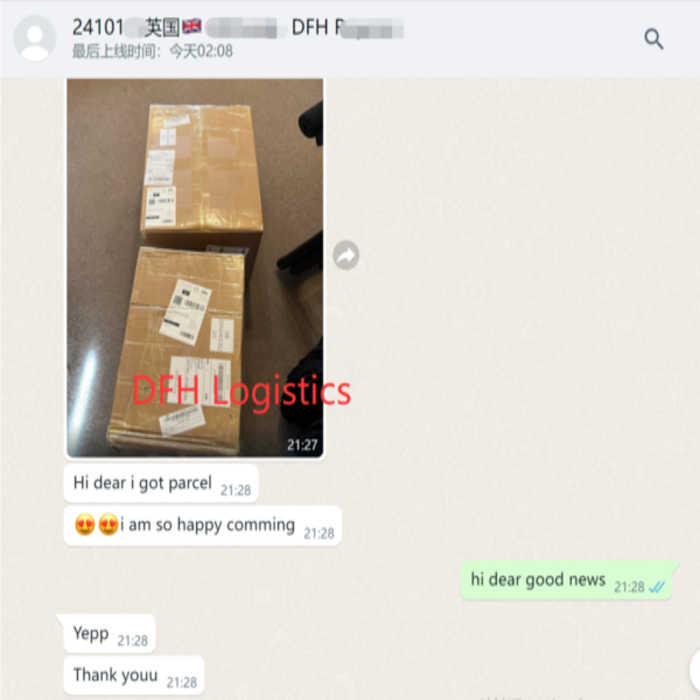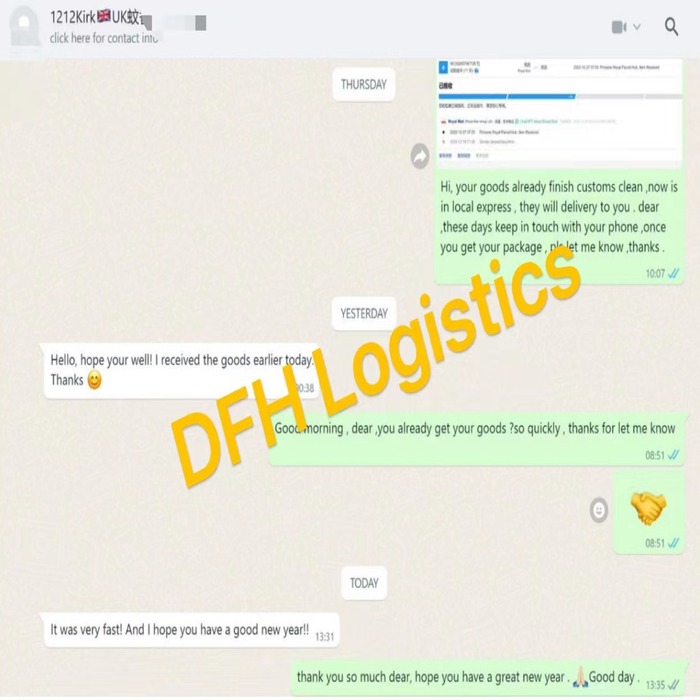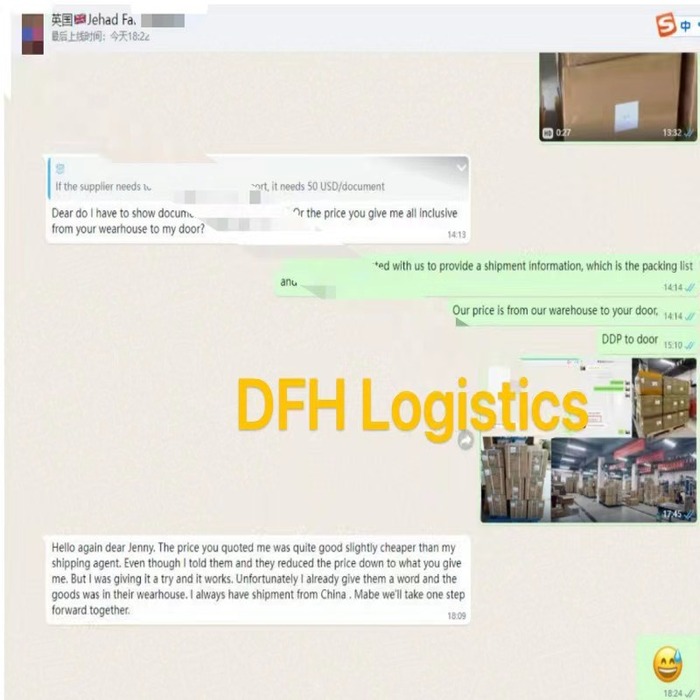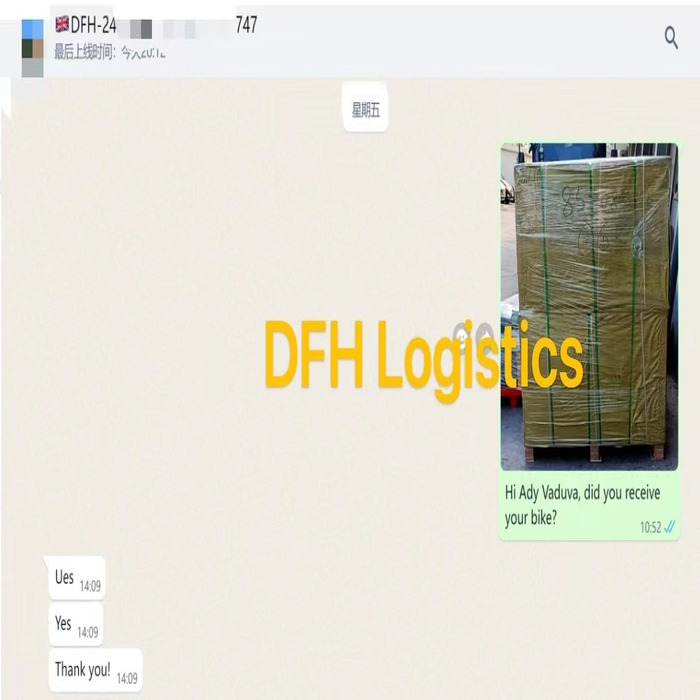Shipping goods from China to the UK can be challenging, especially for businesses navigating international logistics. At DFH Logistics, we understand the importance of streamlined, reliable shipping solutions. With over a decade of experience, we’ve assisted countless businesses and individuals in successfully transporting goods from China to the UK. Whether you’re looking for fast air freight, cost-effective sea shipping, or door-to-door delivery, this guide covers everything you need to know for shipping from China to Germany, ensuring a seamless experience.
What are the 3 Shipping Options from China to UK?
Choosing the right shipping method from China to the UK can save you time, money, and stress. Here, I’ll break down three main options, outlining their pros and cons, so you can determine the best solution for your needs. While each has its merits, I highly recommend the third option for most customers.
1. Shipping directly by Chinese Supplier
Many suppliers offer shipping services, handling the process on your behalf. This can seem convenient as it reduces your involvement in the logistics. However, suppliers may not prioritize finding the most cost-effective or reliable shipping solutions for you. They often focus on their production, leaving little room to optimize your delivery schedule or address potential problems during transit.
2. Shipping directly by UK Local Freight Forwarder
Engaging a UK-based freight forwarder offers a localized touch to your logistics needs. These forwarders often have strong knowledge of the UK market and customs procedures. However, they usually lack on-ground resources in China, making it difficult to manage goods effectively at the origin. This approach may also lead to higher costs due to the added intermediaries in the process.
3. Shipping by Your Own China Freight Forwarder
Partnering with a China-based freight forwarder, like DFH Logistics, combines expertise at the origin and destination. We manage everything from pickup at your supplier’s location in China to delivery at your doorstep in the UK, including customs clearance and duties. This method ensures better control, competitive pricing, and a seamless experience, making it the most efficient and cost-effective choice for your shipments.
What are the shipping methods from China to UK?
Shipping from China to the UK involves multiple methods, each suited for specific needs. The five primary options include air freight, sea freight, express shipping, railway freight, truck transporation and DDP shipping. Below, I’ll explore each method’s advantages, disadvantages, and suitability for different shipment types.
Air Freight from China to UK: Pros and Cons
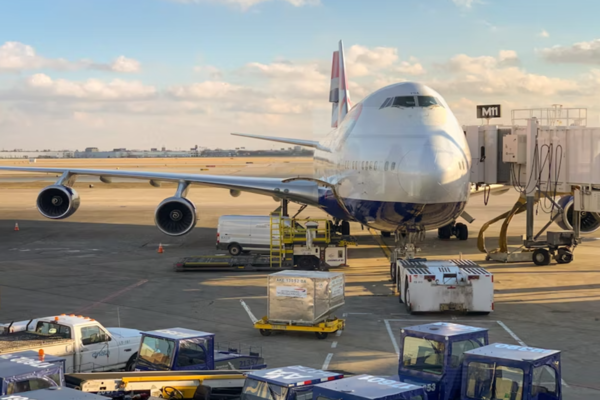
Air freight is the fastest shipping method, making it ideal for urgent or high-value shipments. While it offers unparalleled speed, it is also the most expensive, and capacity limitations might impact the cost further. Here’s a closer look at its options:
Air freight port to port in UK
Port-to-port air freight involves shipping goods between major international airports. It’s often a cost-effective air shipping solution but requires you to handle customs clearance and last-mile delivery yourself. Suitable for experienced importers or those with established UK-based logistics.
Air freight door to door in UK
Door-to-door air freight ensures a hassle-free experience, as the service provider manages everything from pickup in China to delivery in the UK. While more expensive, it is ideal for businesses that value time and convenience, especially for lightweight or urgent shipments.
Sea Freight from China to UK: FCL vs. LCL
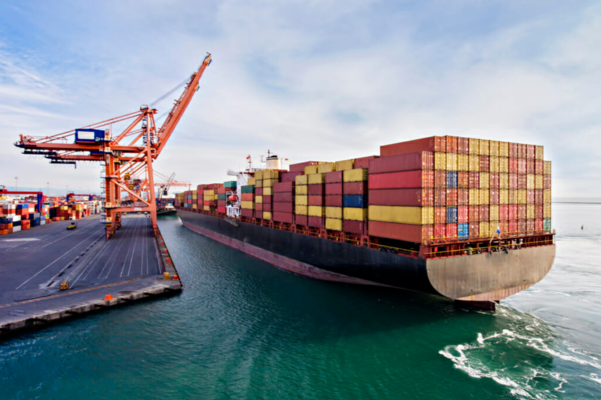
Sea freight is the most cost-effective option for large shipments, with flexibility between Full Container Load (FCL) and Less than Container Load (LCL) options. While slower than air freight, it’s excellent for bulk goods and non-time-sensitive cargo. Let’s dive into each type:
FCL Shipping from China to UK
FCL involves booking an entire container for your shipment. It’s highly cost-efficient for large orders and ensures your goods won’t mix with others, reducing the risk of damage. Ideal for high-volume shipments requiring extra security or privacy.
LCL Shipping from China to UK
LCL consolidates shipments from multiple sellers into one container, making it budget-friendly for smaller loads. While economical, it may involve longer handling times and a slightly higher risk of damage due to shared space. Suitable for SMEs or infrequent shippers.
Express Shipping from China to UK: Is It Worth It?
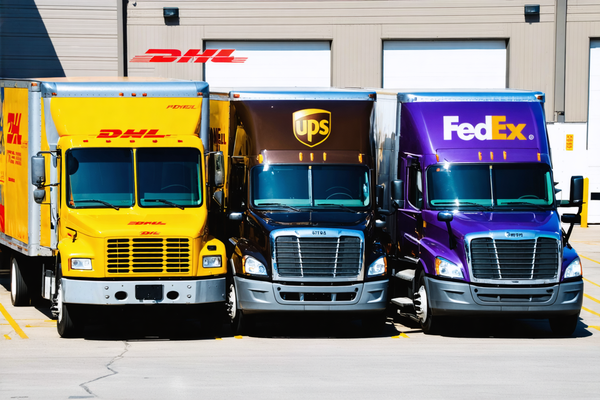
Express shipping provides rapid delivery within days, perfect for small, high-value, or urgent goods. However, its premium pricing means it’s best suited for time-sensitive shipments. Here’s a comparison of leading providers:
DHL Express from China to UK
DHL offers reliable, fast door-to-door service with a strong global network. Known for its excellent tracking and customer support, it’s ideal for businesses needing consistent service for lightweight, urgent parcels.
FEDEX Express from China to UK
FedEx stands out for its time-definite options, including overnight delivery. It’s well-suited for high-priority shipments where speed is non-negotiable but slightly pricier than other carriers.
UPS Express Shipping from China to UK
UPS combines speed and value with excellent customs clearance expertise, making it a great choice for e-commerce businesses and individual shippers needing efficiency and reliability.
Railway Freight from China to UK: Pros and Cons
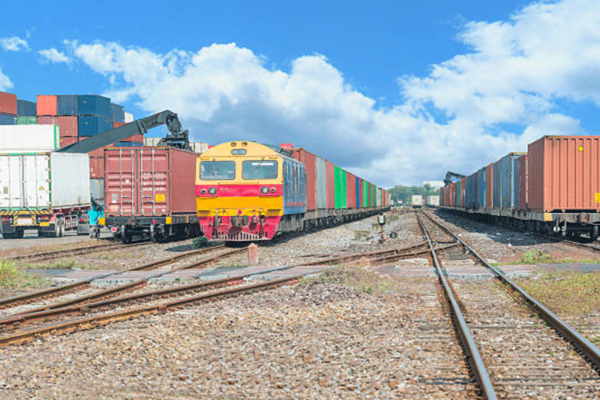
Railway freight is an eco-friendly alternative to air and sea freight, balancing speed and cost. It’s particularly suitable for large shipments that need to be faster than sea freight but more affordable than air freight. However, its reliance on European hubs might increase last-mile delivery complexity.
Truck Transportation from China to UK: Pros and Cons
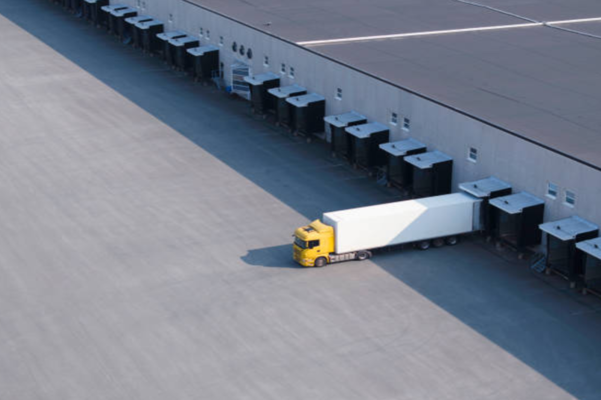
Truck freight offers a flexible solution for transporting goods across Europe, including final-mile delivery in the UK. While it is slower than air freight and but much lower shipping price than air freight, it is an excellent option for medium-sized shipments requiring door-to-door service.
DDP Shipping from China to UK

DDP (Delivered Duty Paid) shipping simplifies international logistics by managing everything, including duties and customs clearance. This is the most comprehensive option for businesses wanting a hands-off approach. Here’s how it works across different transport methods:
Air Freight DDP Shipping from China to UK
This method is perfect for high-value goods requiring fast, secure delivery. It combines speed with the convenience of DDP, but its higher cost may not suit all budgets.
Sea Freight DDP Shipping from China to UK
Sea freight DDP is ideal for large, low-value shipments. It offers significant cost savings compared to air freight while ensuring seamless customs handling and delivery to the UK. but Sea freight DDP with very low MOQ, If only your shipments is more then 21KG and time not urgently, then you can choose Sea freight DDP shipping.
Railway Freight DDP Shipping from China to UK
This involves shipping via rail to UK, where customs clearance occurs before final delivery in the UK via local couriers or trucks. It’s faster than sea freight and cheaper than air freight, making it great for medium-sized shipments.
Truck Transportation DDP Shipping from China to UK
Here, goods are transported by truck from China first after customs clearance in UK and then delivered to the final mail by different local express or truck company. It is a budget-friendly, reliable option for large, non-urgent shipments requiring minimal handling.
What Ports in UK Can You Ship to from China?
Shipping from China to the UK provides access to a variety of major ports, including both airports for air freight and seaports for sea freight. Below, I’ve listed the most notable destinations for each method.
Major Airports in UK
| Airport Name | Location | Key Features |
|---|---|---|
| London Heathrow (LHR) | London | Largest airport in the UK, excellent global connectivity |
| Manchester Airport (MAN) | Manchester | Major hub for cargo in Northern England |
| Birmingham Airport (BHX) | Birmingham | Central UK location for easy distribution |
| East Midlands Airport (EMA) | Leicestershire | Dedicated cargo operations and logistics |
| Glasgow Airport (GLA) | Glasgow, Scotland | Key gateway for cargo to Scotland |
Major Sea Ports in UK
| Port Name | Location | Key Features |
|---|---|---|
| Port of Felixstowe | Suffolk | Largest container port in the UK |
| Port of Southampton | Hampshire | Specializes in container and RoRo cargo |
| Port of London (Tilbury) | London | Strategically located near the capital |
| Port of Liverpool | Liverpool | Ideal for shipments to Northern England |
| Port of Hull | Yorkshire | Focuses on trade with Europe and beyond |
These ports and airports are well-equipped to handle goods arriving from China, offering diverse options based on your shipping needs.
Which Documents Do You Need to Prepare When Shipping from China to UK?
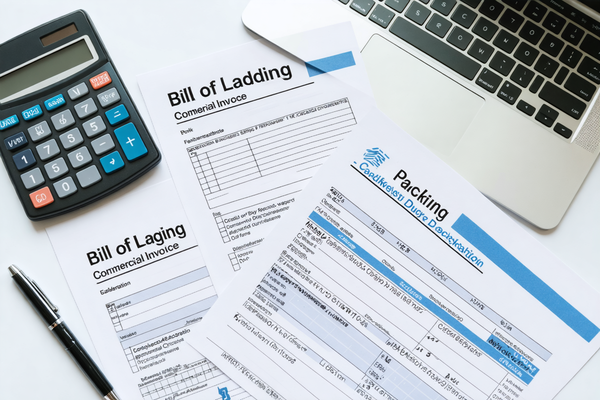
Shipping from China to the UK involves various documentation to ensure smooth customs clearance and delivery. These documents are essential for meeting both Chinese export regulations and UK import requirements. Below is a comprehensive list of the necessary documents and how to prepare them.
Essential Documentation for Shipping from China to the UK
Commercial Invoice
A detailed invoice listing the buyer, seller, description of goods, quantities, and value.Packing List
A document outlining the packaging details, including dimensions, weight, and contents of each box or container.Bill of Lading (BOL) or Air Waybill (AWB)
Proof of shipment, issued by the carrier, serving as a contract between the shipper and the carrier.Customs Declaration
Required for export from China and import into the UK, detailing the nature and value of the shipment.Certificate of Origin
Verifies the country where the goods were manufactured and may be required for tariff calculations.Import Licenses (if applicable)
For restricted goods, you’ll need specific import permissions from UK authorities.Insurance Certificate
Proof of cargo insurance, protecting against potential loss or damage during transit.Proforma Invoice
For pre-shipment approval in some cases, providing an estimated cost and agreement terms.
How to Prepare These Documents
If you’re unsure how to prepare these documents:
- Ask Your Chinese Supplier: Many suppliers are familiar with export procedures and can assist with creating accurate invoices and packing lists.
- Work with Your China Freight Forwarder: Experts like DFH Logistics handle all necessary paperwork, ensuring compliance with regulations and saving you time and effort.
Having the right documentation ensures a seamless shipping experience and avoids costly delays at customs.
What Products Can Be Imported from China to UK?
When importing goods from China to the UK, it’s essential to know what products are commonly shipped and which are prohibited or restricted. Below, I’ve outlined some of the most frequently imported items, as well as those you cannot ship.
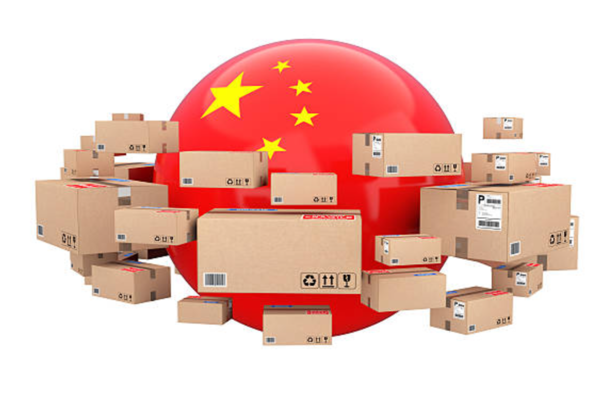
Commonly Imported Products from China to the UK
| Category | Examples |
|---|---|
| Electronics | Smartphones, laptops, chargers, and accessories |
| Apparel and Textiles | Clothing, fabrics, footwear, and accessories |
| Furniture | Office chairs, tables, beds, and home décor |
| Machinery | Industrial equipment and small appliances |
| Toys and Games | Children’s toys, board games, and puzzles |
| E-commerce Products | Jewelry, bags, and personalized items |
| Home Goods | Kitchenware, lighting, and bathroom accessories |
These products are widely imported due to their affordability, quality, and demand in the UK market.
Prohibited and Restricted Items for Shipping to the UK
Certain items cannot be imported from China to the UK due to legal or safety concerns. Here’s a list of some prohibited and restricted products:
| Category | Examples |
|---|---|
| Hazardous Materials | Explosives, radioactive materials, and flammable liquids |
| Counterfeit Goods | Fake branded products and pirated media |
| Weapons | Firearms, ammunition, and certain knives |
| Animal Products | Unprocessed meat, dairy, and products from endangered species |
| Drugs and Pharmaceuticals | Narcotics, unlicensed medicines, and controlled substances |
| Cultural Items | Items of cultural or historical significance without proper documentation |
Important Notes
If you’re unsure whether your product is restricted, consult the UK government’s import guidelines or work with a reliable freight forwarder. For prohibited goods, ensure full compliance to avoid fines or shipment confiscation. If needed, your China freight forwarder or supplier can assist with checking regulations and ensuring smooth transportation.
How Long Does It Take to Ship from China to UK?
Understanding the shipping times from China to the UK is crucial for planning and meeting deadlines. Transit times vary depending on the shipping method, with options ranging from express shipping to sea freight. Below, I’ve outlined the average durations for each method and the factors that can influence these times.
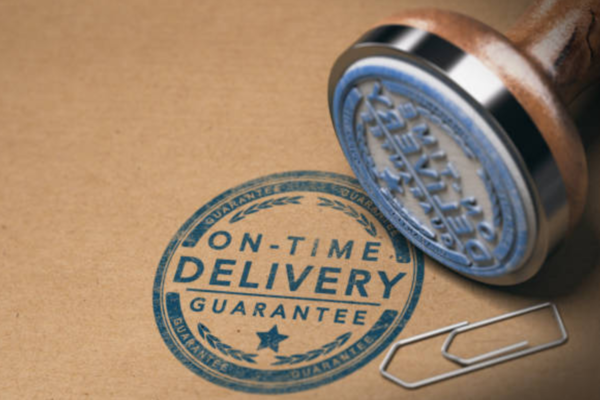
Shipping Times by Method
| Shipping Method | Estimated Transit Time |
|---|---|
| Express Shipping | 2-5 days |
| Air Freight (Port to Port) | 1-3 days |
| Air Freight (Door to Door) | 7-10 days |
| Sea Freight (FCL) | 25-30 days |
| Sea Freight (LCL) | 40-45 days |
| Railway Freight | 30-35 days |
| Truck Transportation (DDP) | 20-25 days (via Europe after customs clearance) |
Factors That Affect Shipping Times from China to UK
Shipping Method Chosen
Express shipping is the fastest, while sea and rail freight take significantly longer. Selecting the right method depends on your budget and urgency.Origin and Destination Locations
Goods shipped from remote areas in China or delivered to less accessible regions in the UK may take longer due to added transportation steps.Customs Clearance
Delays can occur if the required documents are incomplete or if the shipment is flagged for inspection at customs in either China or the UK.Seasonal Demand
Peak shipping seasons, like before Chinese New Year or major holidays, can lead to longer transit times due to congestion at ports or with carriers.Weather Conditions
Extreme weather can disrupt shipping schedules, especially for sea and air freight.Carrier Availability and Capacity
Limited space on planes, ships, or trucks during busy periods can result in delays, particularly for bulk or oversized shipments.
By understanding these factors, you can better plan your shipments and select the most suitable method for your needs.
What Is the Best Shipping Method from China to UK?
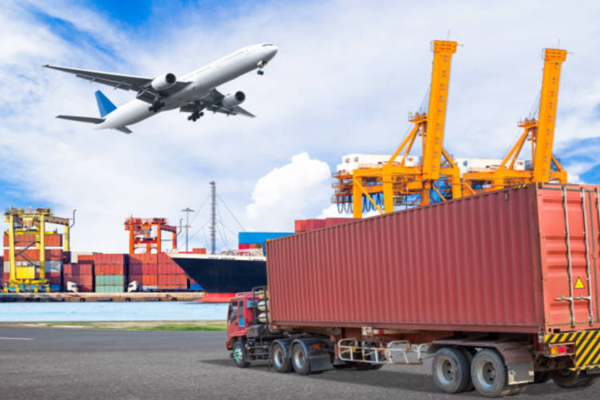
Choosing the best shipping method depends on your priorities—whether it’s speed, cost, reliability, or convenience. Each method has its strengths, and here’s a breakdown to help you decide:
- For Speed: Express shipping is the fastest, with delivery in 2-5 days, making it ideal for urgent shipments.
- For Cost-Effectiveness: Sea freight, especially FCL (Full Container Load), is best for bulk shipments and lower costs per unit.
- For Convenience: DDP shipping handles everything from pickup to delivery, including customs and taxes, offering a seamless experience.
Ultimately, the best option balances your business needs with budget and timelines. For many, a trusted China freight forwarder like DFH Logistics can tailor the best method based on your requirements.
What Is the Cheapest Shipping Method from China to UK?
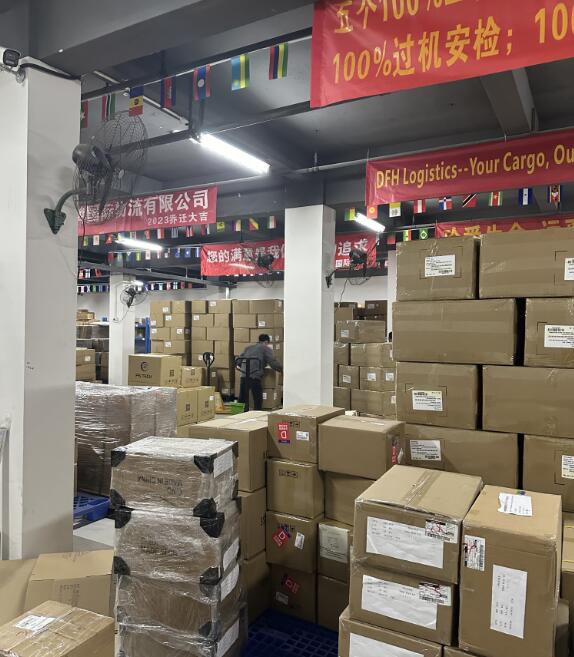
If cost is your main concern, sea freight is typically the cheapest shipping method. However, options like railway freight, truck transportation, and air freight also provide varying levels of cost-efficiency based on shipment size and urgency. Here’s a detailed comparison:
| Method | Average Cost | Best For |
|---|---|---|
| Sea Freight (LCL) | Lowest cost per cubic meter | Bulk goods with no urgent deadline |
| Railway Freight | Mid-cost | Faster delivery for medium-sized loads |
| Truck Transportation | Budget-friendly | accet shipping time 20days around |
| Air Freight (Economy) | Higher cost | Lightweight, moderately urgent shipments |
| Express Shipping | Highest cost | Lightweight, high-value, urgent items |
For cost savings, sea freight or truck transportation are excellent choices. Meanwhile, air freight provides a balance between speed and cost for mid-sized shipments.
How to Do the Customs Clearance from China to UK?
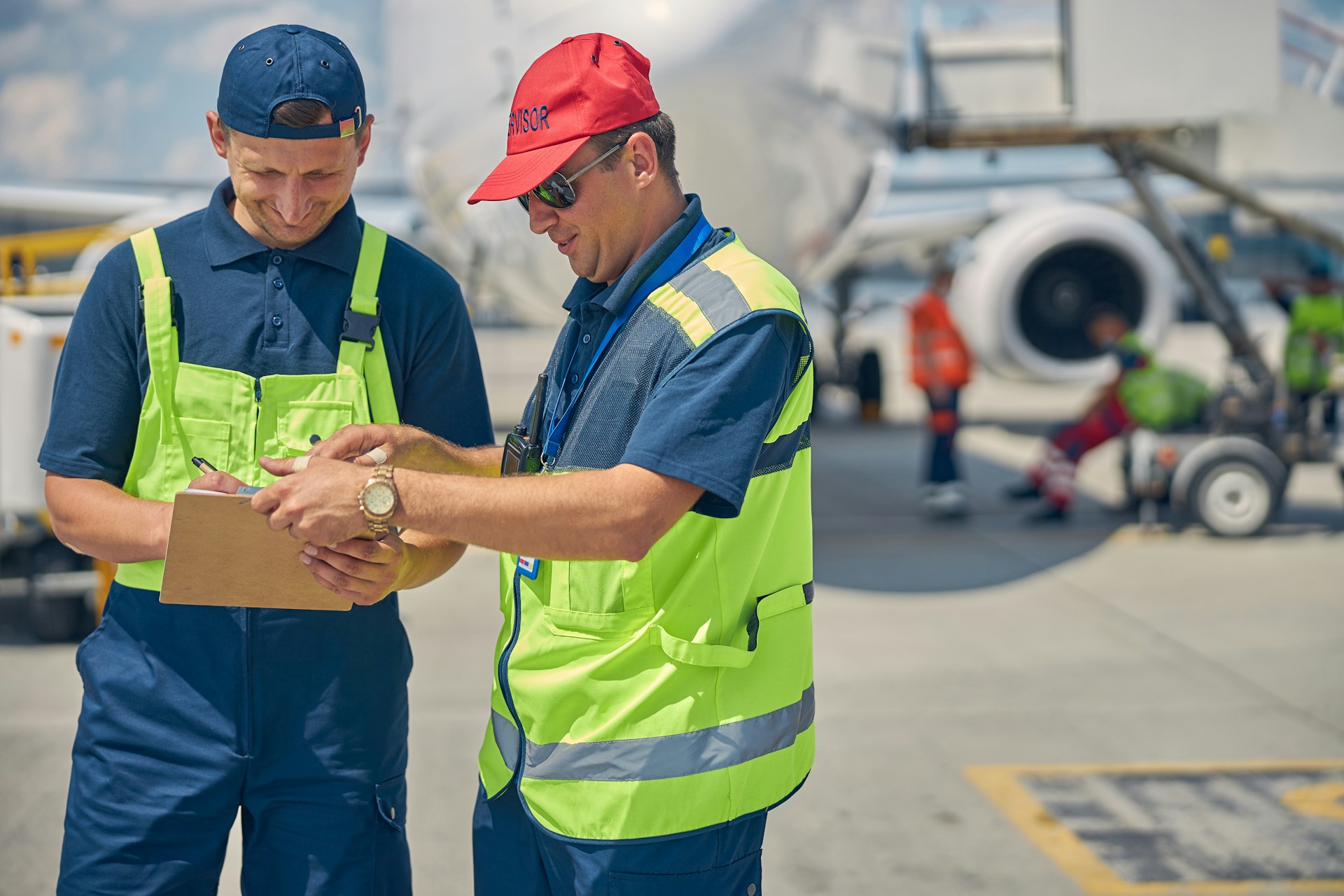
Customs clearance is a crucial step when importing goods from China to the UK. It ensures your shipment complies with all regulations and duties are properly paid. Here’s a simplified overview of the process:
- Prepare Necessary Documents: This includes the commercial invoice, packing list, bill of lading, and any required licenses or certificates.
- Submit Customs Declarations: Provide details of your goods, including value, HS codes, and origin, to HM Revenue and Customs (HMRC).
- Pay Duties and Taxes: Based on the declared value and tariff classification, settle the required fees before goods are released.
- Customs Inspection: If flagged, your goods may be inspected, so ensure accurate documentation to avoid delays.
You can handle this process yourself, or rely on an experienced freight forwarder like DFH Logistics to simplify the experience.
Who Pays for Customs When Importing from China to the UK?
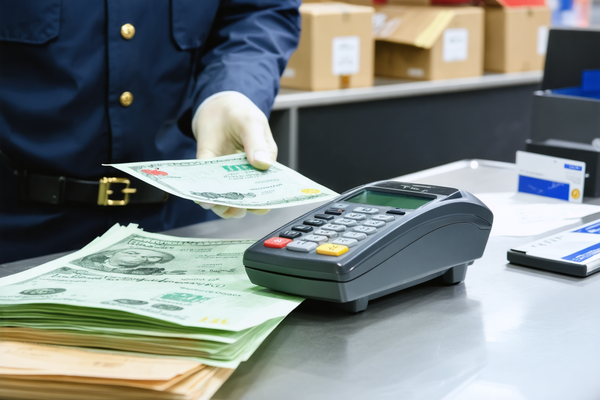
The responsibility for paying customs duties depends on the agreed incoterms (International Commercial Terms) between the buyer and seller. Here are the most common scenarios:
- Buyer Pays (EXW, FOB, CIF): Under terms like Ex Works (EXW) or Free on Board (FOB), the buyer is responsible for customs clearance and paying duties in the UK.
- Seller Pays (DDP): Delivered Duty Paid (DDP) agreements mean the seller handles customs and includes duties and taxes in the shipment cost.
For a hassle-free option, DDP is highly recommended, as it simplifies the process and avoids unexpected charges.
How Much Duties and Taxes Should You Pay for Importing Goods to the UK?
When importing goods into the UK, the duties and taxes depend on the value, type of goods, and applicable tariffs. Here’s a general breakdown:
| Tax Type | Rate |
|---|---|
| Import Duty | 0%-12% (varies by product category) |
| Value-Added Tax (VAT) | Standard rate of 20% |
Example Calculation:
For a shipment valued at £10,000 with an import duty rate of 5%:
- Import Duty: £10,000 × 5% = £500
- VAT: (£10,000 + £500) × 20% = £2,100
Total Duties and Taxes: £2,600
Note: These are approximate figures. The exact rates depend on the specific HS code for your goods and local customs policies. Always verify with HMRC or consult your freight forwarder to get precise calculations.
Which Incoterms Are Good for Shipping Goods from China to UK?
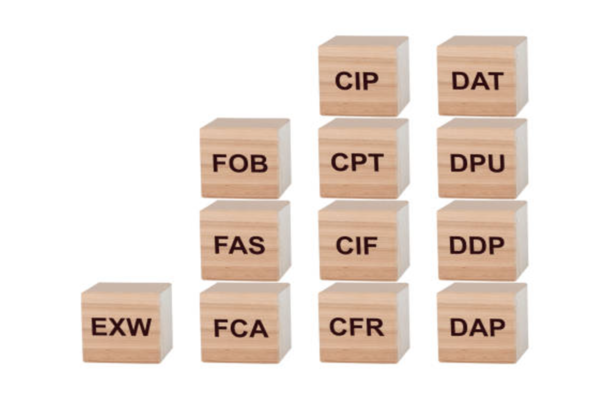
Incoterms (International Commercial Terms) define the responsibilities of buyers and sellers in international trade, including shipping, insurance, and customs duties. Choosing the right incoterms depends on your shipping preferences, budget, and willingness to manage logistics. Here are the most commonly used incoterms for shipments from China to the UK:
Best Incoterms for Buyers
EXW (Ex Works)
- What It Means: The buyer takes full responsibility for transportation from the seller’s factory to the final destination.
- Advantages: Full control over logistics, better cost management, and transparency.
- Best For: Experienced buyers with their own freight forwarder and knowledge of customs clearance.
FOB (Free on Board)
- What It Means: The seller handles transportation to the port of departure and export customs clearance. The buyer takes over once the goods are loaded on the vessel.
- Advantages: Lower responsibility for the seller, while buyers can control freight and insurance beyond the port of origin.
- Best For: Buyers who want a balance of seller support and logistical control.
CIF (Cost, Insurance, and Freight)
- What It Means: The seller is responsible for transportation, insurance, and freight to the destination port, but the buyer handles customs and final delivery.
- Advantages: Minimizes buyer effort for managing initial shipping but leaves customs and last-mile delivery to the buyer.
- Best For: Medium-level buyers who want manageable responsibility.
Best Incoterms for Sellers
DDP (Delivered Duty Paid)
- What It Means: The seller handles everything from transportation and customs clearance to payment of duties and delivery to the buyer’s doorstep.
- Advantages: Hassle-free for buyers, builds trust with customers, and ensures smoother transactions.
- Best For: Sellers targeting e-commerce buyers or businesses without logistics expertise.
DAP (Delivered at Place)
- What It Means: The seller manages all shipping and transportation to the buyer’s location but does not pay for import duties or taxes.
- Advantages: Lower responsibility for duties while still offering convenience to the buyer.
- Best For: Sellers with buyers who have customs clearance knowledge.
Choosing the Right Incoterms
- For Maximum Buyer Control: EXW or FOB is ideal.
- For Shared Responsibility: CIF works well for balanced buyer-seller roles.
- For Full Seller Support: DDP is the most comprehensive, particularly for DTC (Direct-to-Consumer) businesses.
Selecting the right incoterms ensures clear expectations, smoother operations, and optimized costs for your China-to-UK shipping.
Do I Have to Buy Cargo Insurance When Shipping from China to UK?
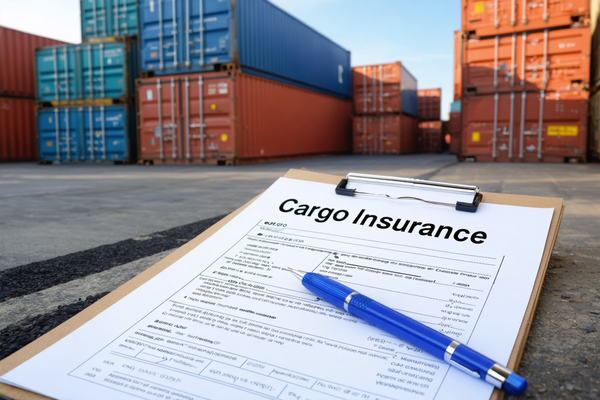
Cargo insurance is not mandatory when shipping from China to the UK, but it is highly recommended. It protects your goods against loss or damage during transit, giving you peace of mind and financial security. Unforeseen events like accidents, theft, or natural disasters can disrupt shipments, making insurance an essential safeguard for your investment.
When to Buy Cargo Insurance:
- High-value or fragile goods.
- Long-distance or multimodal shipping (e.g., combining air, sea, or rail freight).
- Routes prone to delays or weather disruptions.
Who Can Provide Cargo Insurance:
- Freight forwarders like DFH Logistics can arrange cost-effective coverage for your shipments.
- Insurance companies specializing in international trade.
How Much Does It Cost for the Cargo Insurance?
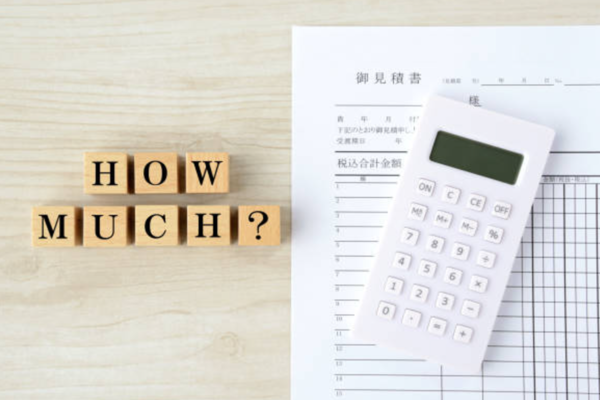
The cost of cargo insurance depends on several factors, including the value of your goods, shipping method, and destination. Here’s a general overview:
| Factor | Typical Rate |
|---|---|
| Value of Goods | 0.3%-0.5% of the total declared value |
| Shipping Method | Higher for air freight; lower for sea freight |
| Destination Risk | Higher premiums for regions with high risks |
Example Calculation:
For goods valued at £10,000 with an insurance rate of 0.4%:
- Insurance Premium: £10,000 × 0.4% = £40
Additional Notes:
- Insurance typically covers "all risks," including physical damage or loss, unless otherwise specified.
- Confirm the terms and conditions of your policy to ensure comprehensive coverage.
- For assistance, ask your freight forwarder to handle the insurance process for simplicity and better rates.
While not required, cargo insurance is a small price to pay to secure your shipment and avoid significant losses.
How to Reduce Shipping Costs from China to UK?
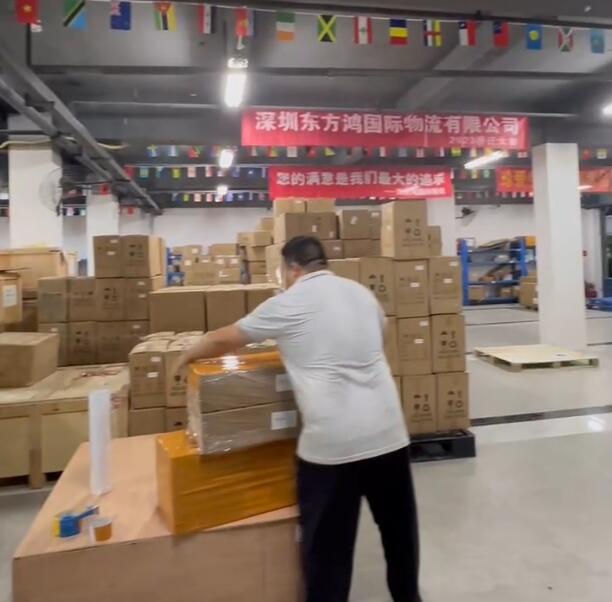
Reducing shipping costs requires a strategic approach to logistics. Here are some practical tips:
Choose the Right Shipping Method
- For small shipments: Use sea freight (LCL) or consolidate shipments to save costs.
- For large shipments: Opt for FCL for the lowest cost per unit.
Plan Shipments in Advance
- Avoid peak shipping seasons like Chinese New Year to secure better rates.
- Book early to take advantage of discounts offered by carriers.
Consolidate Shipments
- Combine orders from multiple suppliers using a freight forwarder like DFH Logistics. This reduces shipping charges per unit and simplifies logistics.
Optimize Packaging
- Use compact, sturdy packaging to reduce volumetric weight. Repacking fragile items can also lower insurance premiums.
Negotiate Rates
- Work with a trusted freight forwarder who can negotiate competitive rates on your behalf.
How to Verify Quality Before Shipments Leave China to UK?
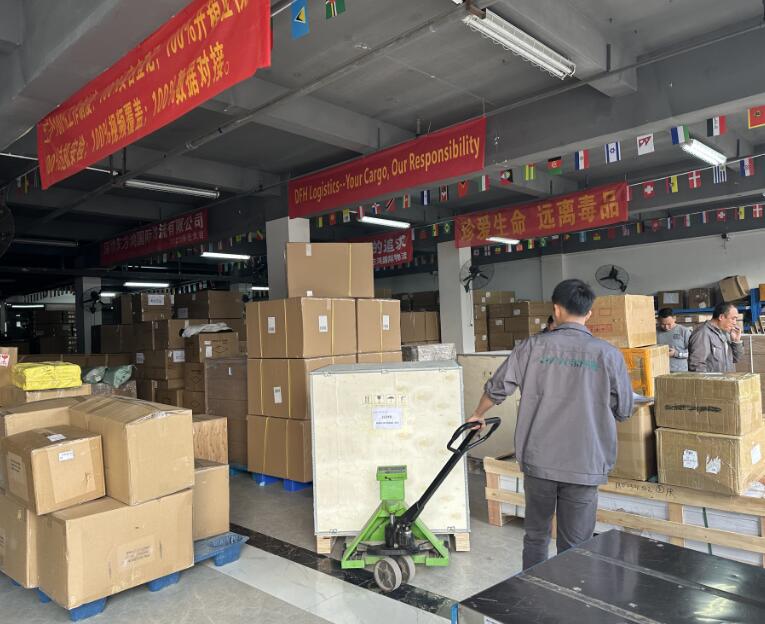
Ensuring product quality before shipping is vital to prevent costly returns or disputes. Here’s how you can verify quality:
Request Supplier Quality Reports
- Ask suppliers to provide quality certifications or inspection reports before production begins.
Hire Third-Party Inspectors
- Engage independent inspection agencies to evaluate your goods. These professionals can check product specifications, quantities, and packaging.
Freight Forwarder Services
- DFH Logistics offers quality-check services where we inspect and photograph goods before shipping, ensuring they meet your requirements.
Perform Sample Testing
- Order and review samples before approving bulk production. Address issues early to avoid shipment delays.
Verifying quality before shipment saves time, money, and reputation in the long run.
How to Ship from Different China Suppliers to UK at the Same Time?
Shipping from multiple suppliers can be challenging, but working with a freight forwarder offering consolidation services simplifies the process. DFH Logistics specializes in consolidating shipments to save you time, money, and effort.
Benefits of Consolidating Shipments with DFH Logistics
Cost Efficiency
- By combining goods from different suppliers into one shipment, you reduce shipping fees, customs charges, and handling costs.
Streamlined Logistics
- We collect goods from your suppliers, store them in our warehouse, and ship them together. This eliminates the need to coordinate with multiple carriers.
Privacy Protection
- Consolidating shipments ensures suppliers cannot see details of each other’s shipments, maintaining business confidentiality.
Optimized Packaging
- Our team repacks and optimizes cargo to reduce volumetric weight and protect goods during transit.
Can You Ship from China to Amazon FBA in UK?

Yes, shipping to Amazon FBA (Fulfillment by Amazon) warehouses in the UK is entirely possible. At DFH Logistics, we specialize in helping e-commerce sellers streamline this process by providing end-to-end services, including:
Compliance Assistance
- Ensure your shipment meets Amazon’s packaging, labeling, and documentation requirements.
Customs Clearance
- We handle customs procedures, so your goods reach FBA warehouses without delay.
Delivery Coordination
- Deliver directly to Amazon FBA centers, avoiding storage penalties or delays.
Shipping to Amazon FBA is smooth and efficient when you partner with an experienced freight forwarder like DFH Logistics.
How to Track the Shipment from China to UK?
Once your shipment is dispatched, we provide you with a unique tracking number and a website link to monitor your shipment. Here’s how it works:
Receive Tracking Number
- After dispatch, DFH Logistics provides a tracking number linked to your shipment.
Track Online
- Visit the carrier’s tracking website or DFH’s tracking portal. Enter the tracking number to view your shipment’s progress in real-time.
Stay Updated
- Get details of every transit point, including estimated arrival times and customs clearance status.
This system ensures transparency and peace of mind throughout the shipping process.
How to Choose a Reliable Freight Forwarder from China to UK?
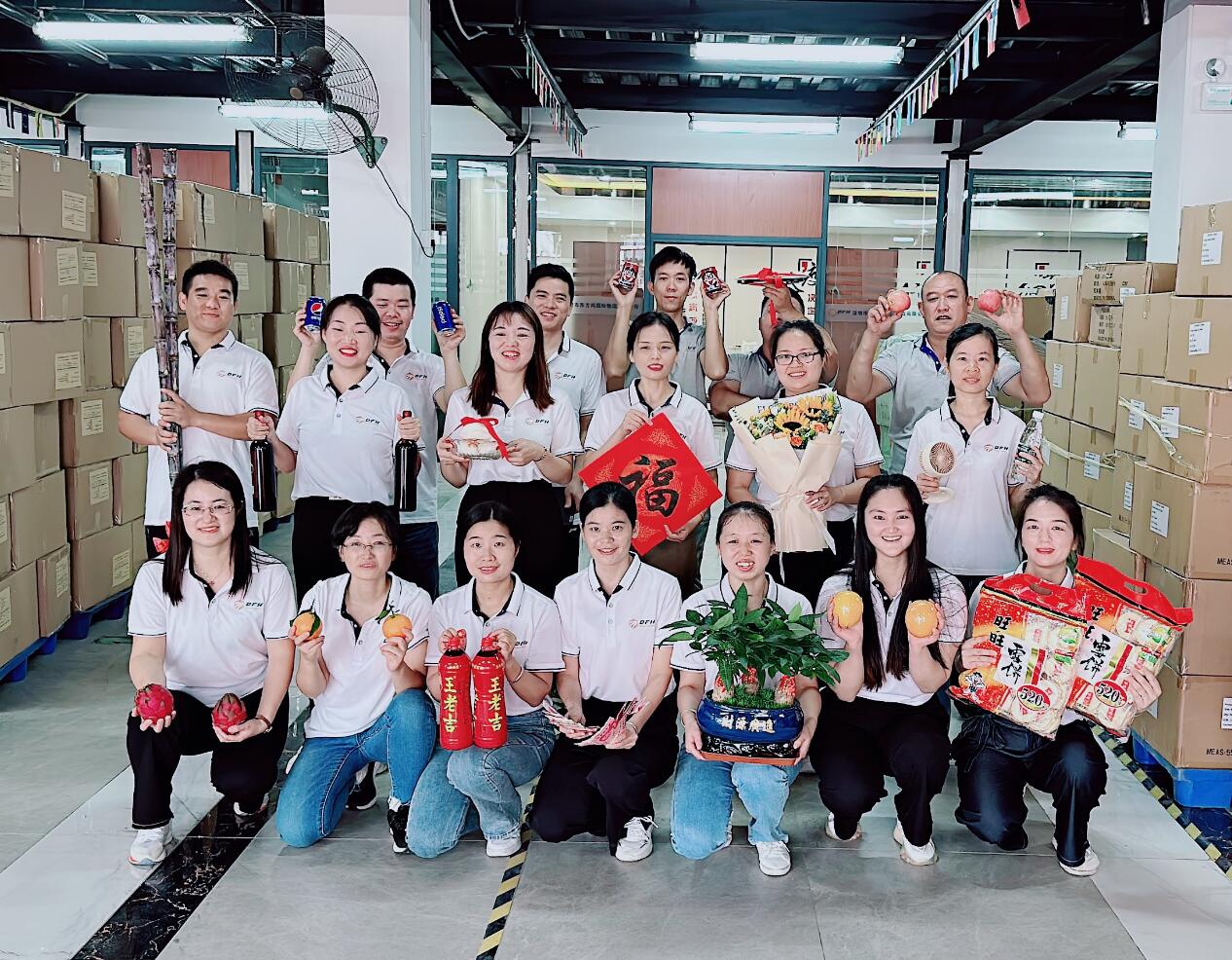
Choosing the right freight forwarder is key to hassle-free shipping. Here are some factors to consider:
Experience and Reputation
- Select a forwarder with proven expertise in China-to-UK shipping and strong reviews.
Comprehensive Services
- Look for end-to-end solutions, including customs clearance, consolidation, and tracking.
Transparent Pricing
- Ensure the forwarder provides clear, competitive pricing with no hidden fees.
Strong Communication
- Reliable updates and responsive customer service are essential for smooth operations.
Why Consider DFH Logistics as Your Freight Forwarder from China to UK?
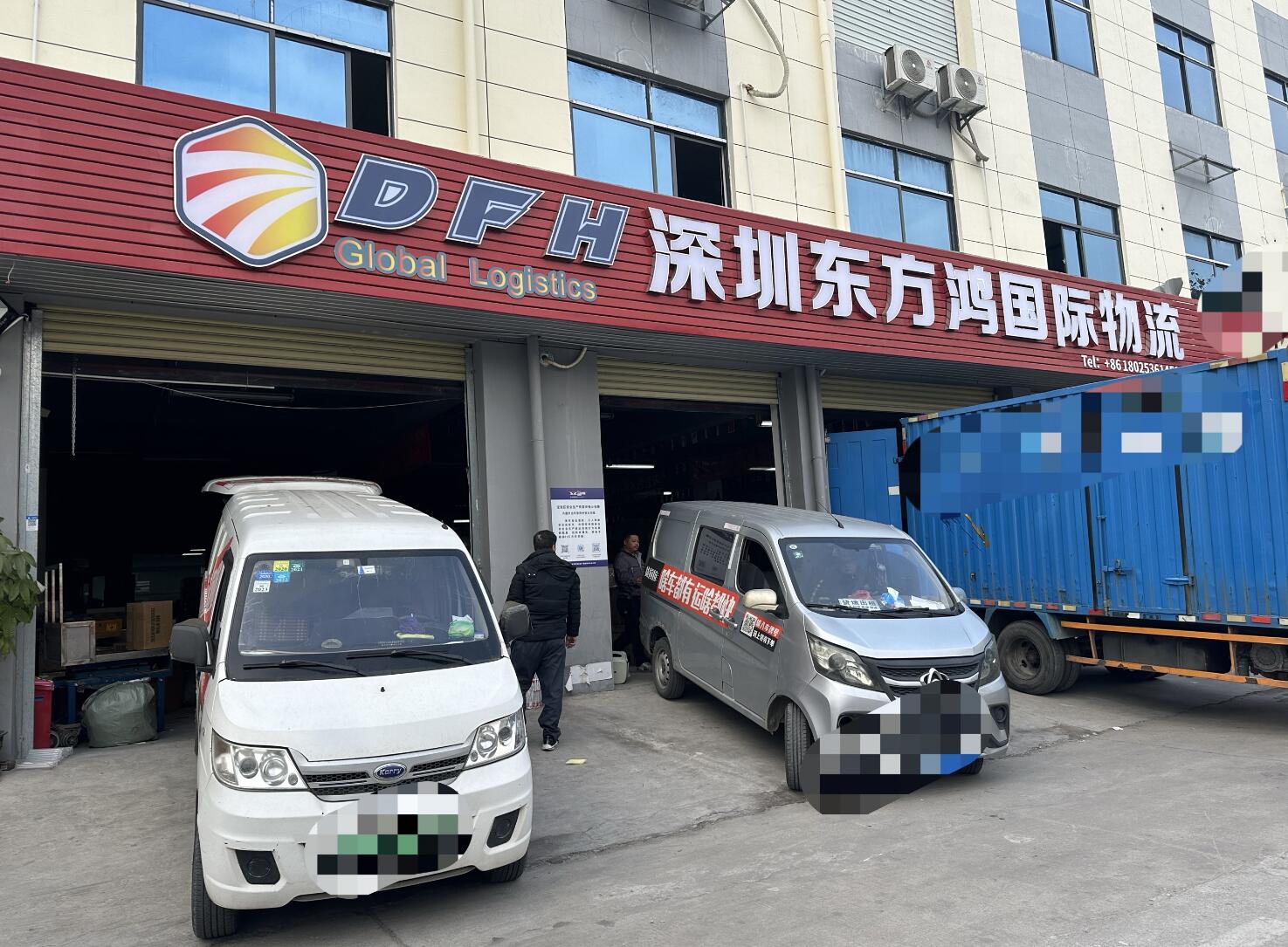
DFH Logistics stands out as a trusted partner for all your China-to-UK shipping needs. Here’s why:
- Expertise: With over a decade of experience, we’ve handled thousands of shipments efficiently and reliably.
- Customized Solutions: From air freight to sea freight and DDP services, we offer tailored options to fit your budget and timeline.
- Consolidation Services: Our free warehousing and consolidation services save costs and simplify logistics.
- Transparent Processes: From tracking to delivery, we provide full transparency at every stage.
When you work with DFH Logistics, you gain a dedicated partner focused on your success.
Conclusion
Shipping from China to the UK can seem complex, but with the right freight forwarder, the process becomes seamless. If you have any additional questions about shipping or logistics, feel free to contact us. Let DFH Logistics handle your shipping needs while you focus on growing your business!

